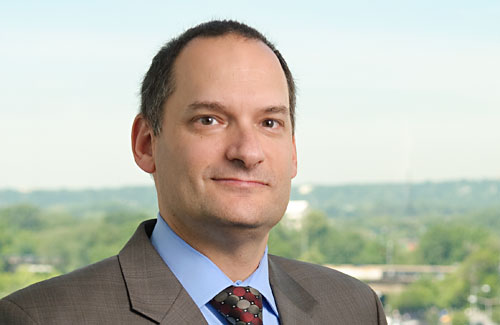 |
| Howdy Doody, Detroit style. |
Hugh has a background in child welfare procurement.
Hugh has a background in human intelligence.
Hugh knows about privatization.
Hugh has a background saving children because he knows what they do to the children.
“Cornerstone … is not a prison, it is a juvenile center,” said Hugh Hurwitz, a BOP spokesman.
2013 Walton Family Foundation Grants
Attorney General Sessions Announces Hugh Hurwitz as the Acting Director of the Federal Bureau of Prisons
 |
| Hugh Hurwitz |
“I am pleased to announce Hugh Hurwitz as the Acting Director of the Federal Bureau of Prisons. Hugh has honorably served the Department of Justice, the Federal Bureau of Prisons and the American people throughout his distinguished career of federal service.” said Attorney General Jeff Sessions. “I would also like to thank Mark Inch for proudly serving the Department of Justice as the Director of the Federal Bureau of Prisons and wish him luck in his future endeavors.”
Mr. Hurwitz began his career with the Bureau of Prisons as a law clerk in the Office of General Counsel in 1988. In 2003, Mr. Hurwitz was selected as the Chief of Acquisitions and Grants Services at the Food and Drug Administration (FDA), later becoming the FDA's Chief of Information Technology Shared Services. In 2007, he was appointed Senior Procurement Executive for the U.S. Department of Education (ED) before being promoted to Deputy Chief Financial Officer. Mr. Hurwitz joined NASA's Office of Inspector General in 2012 as the Assistant Inspector General for Management. In 2015, he returned to the Bureau of Prisons as the Senior Deputy Assistant Director of the Information, Policy and Public Affairs Division. In 2017, Mr. Hurwitz was named Assistant Director for the Reentry Services Division.
As Assistant Director, Mr. Hurwitz oversaw a wide variety of areas, including mental health and drug treatment, community placement, and the education, vocational and recreation training programs for federal inmates nationwide. Mr. Hurwitz was responsible for coordinating efforts with other disciplines, agencies, and organizations to facilitate the successful reintegration of inmates back to their communities upon release.
In 1987, Mr. Hurwitz received his Bachelor of Arts degree in Political Science from the University of Rochester. In 1990, he received his Juris Doctor degree from American University, Washington College of Law.
Fed Phaseout on Private Prisons: What It Means for Juvenile Offenders
Following a damning report from its inspector general’s office, the Department of Justice announced late last week that the federal Bureau of Prisons (BOP) would gradually move away from contracting with private corrections agencies to securely confine federal inmates.
There are 22,000 BOP inmates housed in private facilities now, and the announcement is expected to precipitate a drop to 14,000 by next year. All contracts for private prison beds would sunset in a five-year window.
 How does this affect the juvenile justice field? Based on Youth Services Insider‘s initial inquiries, not much, based on the nature of BOP’s juvenile contracts and how it differentiates them from adult correctional settings.
How does this affect the juvenile justice field? Based on Youth Services Insider‘s initial inquiries, not much, based on the nature of BOP’s juvenile contracts and how it differentiates them from adult correctional settings.
BOP policy is that juveniles convicted in adult court are not to be incarcerated in a federal prison until they turn 18, which means there are two implications to consider here.
The first is where BOP holds convicted youth until they reach 18. This is never a huge number; there are less than 30 convicted juveniles in the custody of BOP.
As mentioned, they can’t go to a BOP prison until they are adults, so the agency has to contract for their arrangements. But surprisingly, almost nothing will change for this group.
BOP contracts with one private provider, the Colorado-based Cornerstone Programs, for secure juvenile beds. BOP pays for space at Cornerstone’s facility in Post, Texas.
But even though the facility is secure and operated by a for-profit entity, it will not be subject to the overall policy change.
“Cornerstone … is not a prison, it is a juvenile center,” said Hugh Hurwitz, a BOP spokesman.
At any given time, a significant portion of juveniles in BOP custody are youth from Washington, D.C., who are dealt with in federal court when they are transferred to the adult system.
There will also be no change in how these youth are handled. BOP currently contracts with the city to house these juveniles in a single unit of the Correction Treatment Facility, an annex to the city’s jail.
As of right now, that facility is operated by a private prison provider, the Corrections Corporation of America. But plans have already been made for the city to take control of the facility in early 2017, and the juvenile unit is already staffed by city corrections officials.
BOP contracts with state and local corrections, known as intergovernmental agreements (IGA), will not change as a result of the planned phaseout of providers.
Aside from D.C. youth, many of the youth in BOP custody hail from Indian country. To that end, the agency has IGA relationships with North Dakota, Pennington County, South Dakota, and Maine.
The rest of BOP’s juvenile-related contracts are for non-secure beds in places with high Native American populations:
- Our Home, Inc, Huron, S.D.
- Our Home, Inc., Parkston, S.D.
- AMI Kids Non-Secure Juvenile, Cuba, N.M.
- McCrossan Boys Ranch, Sioux Falls, S.D.
All of those providers are nonprofits, but even if they weren’t, those contracts would be fine. If Cornerstone’s facility isn’t being deemed a “prison,” then certainly contracts for non-secure beds are safe.
The other juvenile justice factor here is whether the changes will influence where convicted juveniles end up after age 18. BOP does currently contract with Management and Training Corp. to operate Giles W. Dalby, a minimum-security facility in the same town as the Cornerstone juvenile center.
Many of the D.C. juvenile inmates are sent to Rivers, a low-security prison in North Carolina. Rivers became the primary receiver of D.C. inmates after the National Capital Revitalization Act of 1997 forced the closure of the D.C.-operated Lorton Correctional Complex.
Rivers did not get a glowing review in the inspector general’s report that prompted the move away from private contracts. From the report:
“Rivers had the highest rates of contraband finds (excluding cell phones), inmate assaults on staff, uses of force, guilty findings on inmate discipline cases, inmate grievances, positive drug tests, inmate-on-inmate sexual misconduct and the lowest phone monitoring rate.”
It’s worth noting, though, that someone who works with juvenile offenders in the federal system said several federally run prisons housing D.C. inmates are far worse than Rivers.
Rivers was built in 2000 by GEO Group, and the company has operated it on contract since 2001. So BOP will have to find new space for about 1,100 offenders, or perhaps buy the prison from GEO.
Learn more: BEVERLY TRAN: Debtors' Prison For Kids: The Residuals Of The Peculiar Institution http://beverlytran.blogspot.com/2016/09/debtors-prison-for-kids-residuals-of.html#ixzz5FtXS4tLa Stop Medicaid Fraud in Child Welfare

1 comment:
This popped up.
Post a Comment